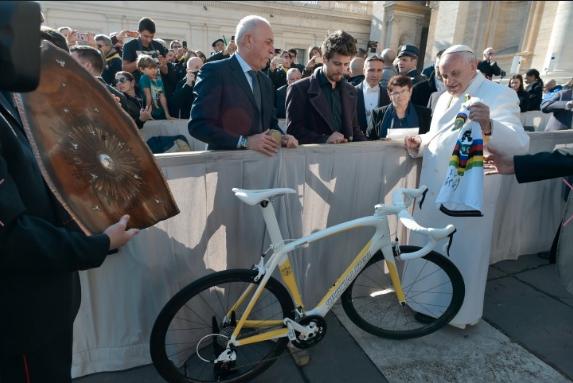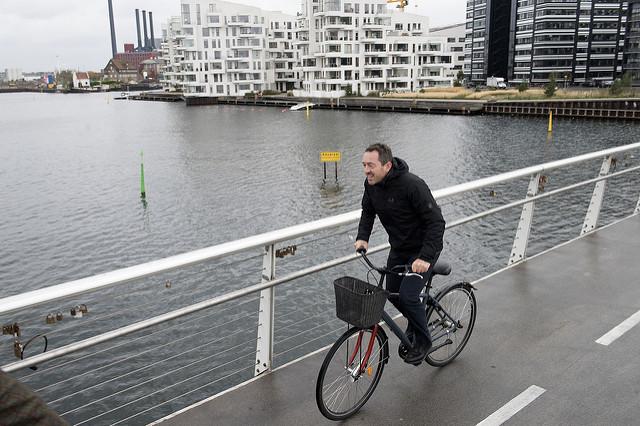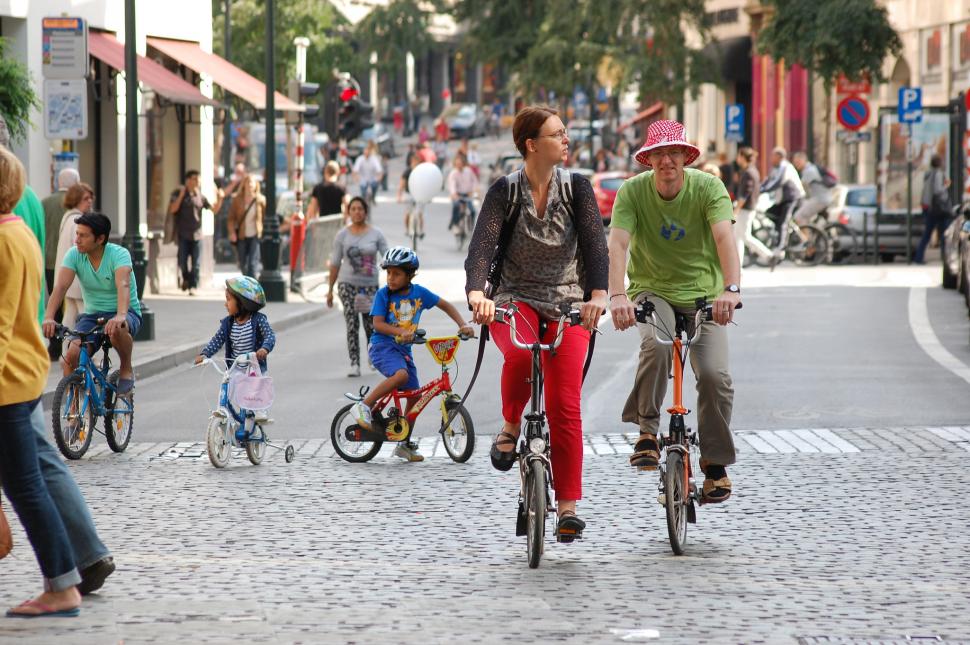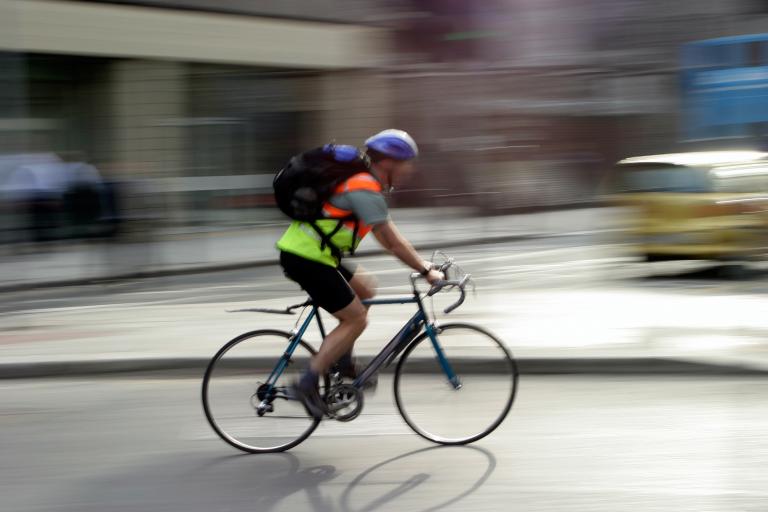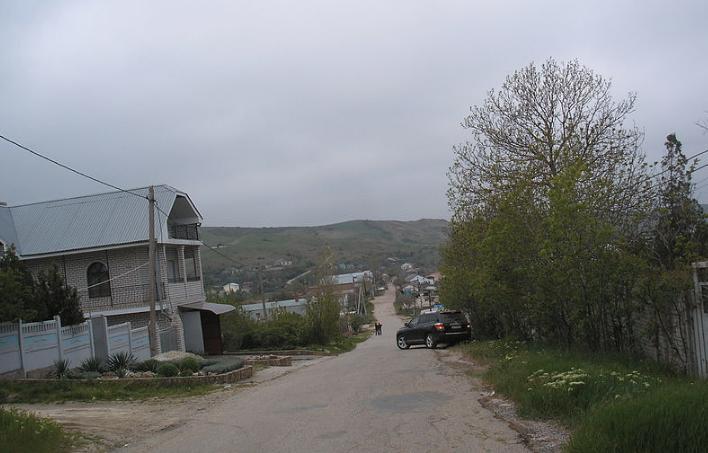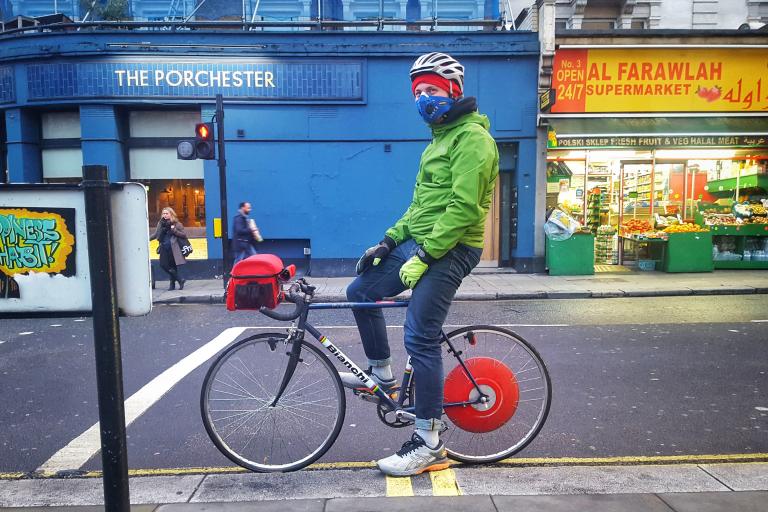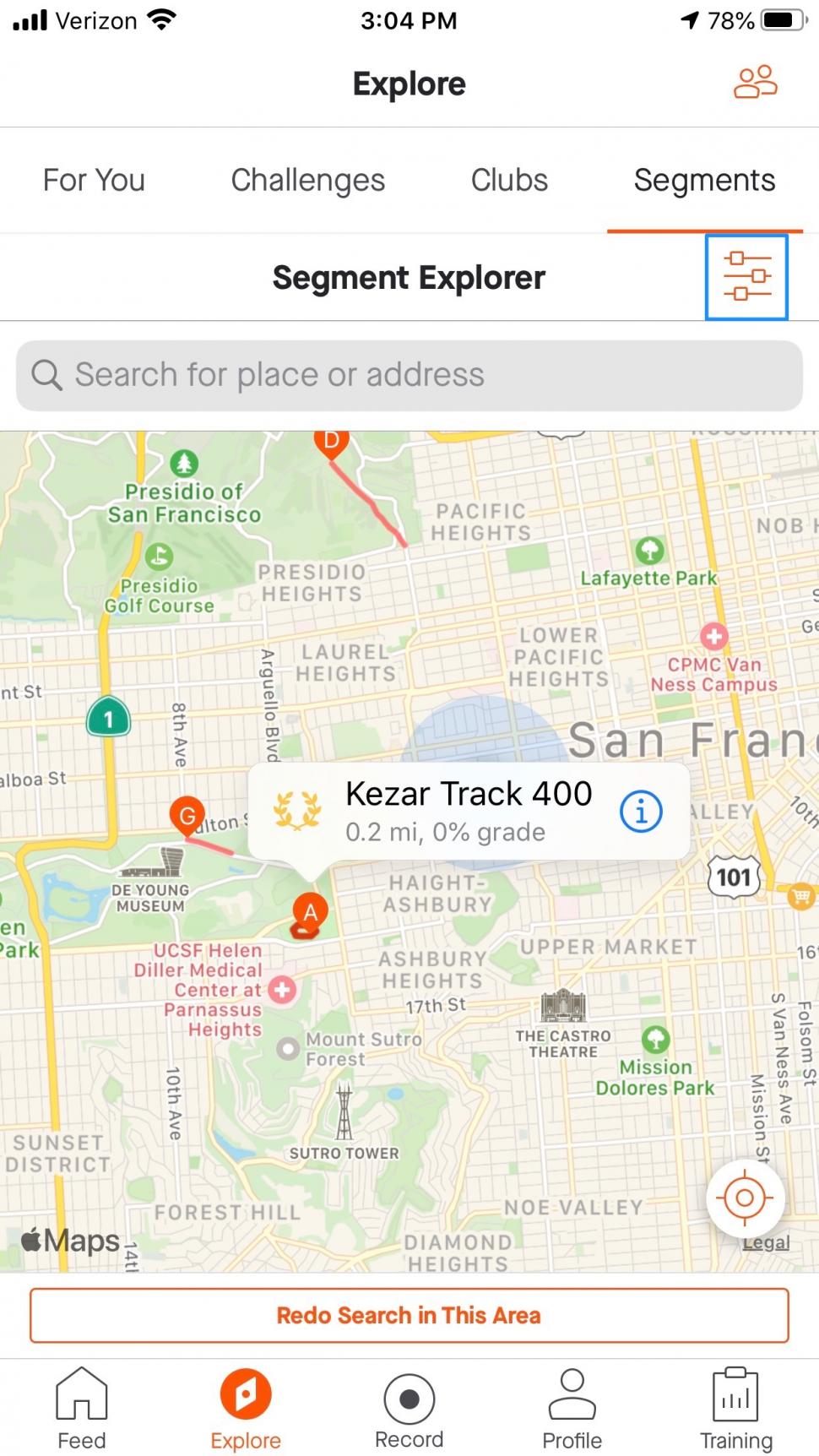- News
- Reviews
- Bikes
- Accessories
- Accessories - misc
- Computer mounts
- Bags
- Bar ends
- Bike bags & cases
- Bottle cages
- Bottles
- Cameras
- Car racks
- Child seats
- Computers
- Glasses
- GPS units
- Helmets
- Lights - front
- Lights - rear
- Lights - sets
- Locks
- Mirrors
- Mudguards
- Racks
- Pumps & CO2 inflators
- Puncture kits
- Reflectives
- Smart watches
- Stands and racks
- Trailers
- Clothing
- Components
- Bar tape & grips
- Bottom brackets
- Brake & gear cables
- Brake & STI levers
- Brake pads & spares
- Brakes
- Cassettes & freewheels
- Chains
- Chainsets & chainrings
- Derailleurs - front
- Derailleurs - rear
- Forks
- Gear levers & shifters
- Groupsets
- Handlebars & extensions
- Headsets
- Hubs
- Inner tubes
- Pedals
- Quick releases & skewers
- Saddles
- Seatposts
- Stems
- Wheels
- Tyres
- Health, fitness and nutrition
- Tools and workshop
- Miscellaneous
- Cross country mountain bikes
- Tubeless valves
- Buyers Guides
- Features
- Forum
- Recommends
- Podcast
news
Rigoberto Urán gifts new bike to backpack-wearing farmer; Strava 'Local Legends' feature; More or Less host reflects on fall that left 'bits of his face' on road; Temporary bike lanes "a matter of social justice" says Boardman + more on the live blog
SUMMARY
 rigoberto uran drafted by local in colombia - via rigoberto uran on instagram.PNG
rigoberto uran drafted by local in colombia - via rigoberto uran on instagram.PNG12 June 2020, 16:47
Bike that Peter Sagan gifted to Pope Francis is currently bidding at £12,500 in charity auction
As we reported earlier this week, the one-off Specialized Venge presented to the Pope in 2018 is now getting auctioned off in aid of the Vatican's We Run Together charity; and it looks like it's set to fetch a handsome sum, with the current bid at 13,500 euros (about £12.5k) with almost six days to go. If you've got a few quid lying around and want to up the bidding, the online auction is taking place here on the Charity Stars website.
12 June 2020, 15:51
Mark Cavendish "on the absolute limit" trying to match Annemiek van Vleuten and Amanda Spratt
We absolutely love this!@MarkCavendish doing his best to keep up with @AvVleuten & @AmandaSpratt 😅 pic.twitter.com/Yo2zuuP7sK
— ITV Cycling (@itvcycling) June 12, 2020
Cav is currently training at altitude in Italy, and happened across the road world champion van Vleuten and her Mitchelton-Scott teammate Spratt* while riding up the Stelvio pass (the clip was originally shared on his Instagram account earlier this afternoon). As you can hear he was blowing pretty hard, as the two ahead of him seemed rather more relaxed.
* There's nothing wrong with either of their saddle heights, mansplainers (something Van Vleuten man has dealt with before)
12 June 2020, 15:46
Temporary bike lanes are "a matter of social justice", says Chris Boardman
Boardman - who is a Policy Adviser to British Cycling as well as Manchester's Cycling and Walking Commissioner - said in a speech that those who don't have access to a car need infrastructure to safely walk and cycle as the lockdown begins to lift.
Speaking to the All Party Parliamentary Cycling and Walking Group, Boardman said: “Social justice is a strong reason for change, it helps politicians make tough and sometimes unpopular decisions, and it also helps the public understand and tolerate changes that might inconvenience them.
“In the UK around a quarter of all households don’t have access to a car, so they are reliant on public transport. On a standard day in Greater Manchester there are 300,000 trips on public transport of three miles or less, and for the next few months at least, those public transport options will be limited to less than 20% of usual occupancy. That means every day 240,000 people will not be able to travel in this way if they are to comply with social distancing guidelines.
“We’d need to find 12,000 extra buses to accommodate them, which is clearly impossible, so 240,000 people – many without access to a car – must find an alternative or simply not travel to work, schools or the shops.
“Right now, this isn’t about pollution, congestion, inactivity, or cost – the usual arguments for investment in cycling. It’s about social justice, social inclusion, and making sure that those who don’t have a car have a safe travel choice.”
12 June 2020, 14:36
'More or Less' host Tim Harford reflects on bike crash left 'bits of his face' on the road
A few weeks ago I managed to fall off my bike and leave bits of my face on the road. I do not recommend this - but there were compensations:https://t.co/cx18wfSeUI
— Tim Harford (@TimHarford) June 12, 2020
The economist - host of the Radio 4 show More or Less since 2007 - has penned an article on his 'Undercover Economist' website in which he reflects on the lessons learned in the aftermath of a horror crash. Harford says he was left in "a spreading puddle of blood" when he came over the bars, caused by his chain snapping when he was out of the saddle: "Absorbing the impact of the tarmac with your mouth is a strategy that I cannot endorse. Next time I’ll try to land on my backside", he advises.
Harford says he was amazed at the speed bystanders rushed to offer their help and the care he received when he arrived at hospital, and has learned to count his blessings: "I am grateful that I work not on television, but in print and radio. Now, more than ever, I have the face for it", he added.
12 June 2020, 10:02
The farmer who was filmed drafting Rigoberto Urán in baggy khakis and a backpack now has a brand new bike for his efforts
The story of the backpack-clad Colombian local who was filmed keeping up with Rigoberto Urán at speeds of 45km/h has progressed, with Urán gifting him a brand new Cannondale bike for his efforts.
Urán is a major celebrity in his cycling-obsessed homeland, which means anyone filmed holding his wheel dressed in baggy clothes and work boots was bound to gain viral fame and legend status fairly quickly. That man has now been identified as Iván Dario, 54-year-old flower farmer who was on his way to work when he decided to hop onto the back of the Olympic silver medallist earlier this week.
It turns out Urán also has his own bike shop, where he gave Iván his new bike and a whole new cycling wardrobe before setting him up on a Zwift race to check his performance out on the road wasn't a fluke. Iván commented: "It was an honour to be able to talk to Rigo, and he even invited me to take part in a virtual race. He is very humble and says hello to everyone. I am a huge fan of him and his achievements."
12 June 2020, 14:18
Castelli launch subtle new 'Line' Team Ineos collection
If you want to show your support for Team Ineos in a slightly more subtle fashion, then the new Line collection should fit the bill. With block colours and small logos on the chest, the back still has the middle strip that features on the official team jersey, but otherwise things are kept pretty minimalist.
The options are the Competizione Jersey (£75) available in men's and women's cuts and in three colours, and the Summer Wool jersey (£120) featuring a merino blend and available in two colours. All are in stock on Castelli's UK website now.
12 June 2020, 12:47
80% of Belgian and Dutch cyclist accidents don't involve a motor vehicle, claims new study
A study into Belgian and Dutch hospital admissions reported that most cyclist injuries occurred due to 'one-sided' accidents, such as falls or collisions with an obstacle. Professor Bas de Geu of Vrije Universiteit Brussel said that road furniture such as bollards and potholes were to blame for a large proportion of the incidents, telling Brussels Times: “Bollards are very dangerous. They are often placed in the middle of the cycling lane to stop cars. But a collision with them at 15 or 20 km/hour often has serious consequences."
If you think that incident rate is rather surprising, you're not alone; in a survey of 2,000 people, 60% of Dutch respondents and 71% of Belgians thought that collisions with motor vehicles were the most likely incidents to lead to hospitalisations. The findings also seem to be drastically different to the situation in the UK, as Department for Transport stats from 2012 revealed that there were 2,434 collisions between a cyclist and a car. Although this doesn't tell us how many were killed or seriously injured (KSI) those same stats reveal there were 248 cyclist KSI's that didn't involve any other vehicle in 2012. Country vs country comparisons don't paint the whole picture of course, but it would certainly be fascinating to see the results of a similar study in the UK.
12 June 2020, 14:32
The best kit you can get, says Sir Bradders
12 June 2020, 14:02
Bur you knew that of course...
12 June 2020, 12:34
Channel 4 news anchor Krishnan Guru-Murthy cycling 300km to make up for missed London to Paris ride
Still going. Half way to Oxford now. https://t.co/ahweqwig6m #DuchenneDashATHOME pic.twitter.com/w6kpIRoMYx
— Krishnan Guru-Murthy (@krishgm) June 12, 2020
Guru-Murthy is currently on his way to Oxford, as he attempts to cycle the same distance as the London to Paris ride he would have taken part in over two days. He's doing the ride in aid of Duchenne UK, and the fundraising page can be found here.
12 June 2020, 12:05
Former Russian road safety official who knocked over 12-year-old cyclist sues him for damage to her car
Lilia Khoruzhenko - who used to work for the Ministry of Education and Science in the Russian region of Murmansk Oblast - won over 120,000 Rubles (£1,300) in damages from the boy's family after a bizarre ruling by Khoruzhenko's local district court.
Exitoina reports that the incident happened in 2019, when Khoruzhenko knocked down the boy with her Volkswagen SUV. He suffered numerous serious injuries including a fractured skull and broken front teeth, while Khoruzhenko was uninjured. The boy's family decided not to file charges to concentrate their efforts on his recovery; but in the meantime Khoruzhenko had instructed her lawyers to file a case for damages, because of a local law that deems children under 14 must only ride on designated bike paths and pavements. An independent investigation concluded he was not guilty of infringements; but when Khoruzhenko took the case to her local court, they ruled in her favour.
The boy's father said that it was an error to take his son home from hospital at the earliest opportunity, as this gave Khoruzhenko's lawyers the chance to downplay the severity of his injuries. He says his family intend to appeal the decision.
In a cruel twist of irony, Khoruzhenko used to be responsible for children's road safety in her job at the Ministry; understandably she departed the role in the aftermath of the incident.
12 June 2020, 14:34
Zwift, more Zwift, pop-up bike lanes, cycling brands making PPE... it's been a funny few months
12 June 2020, 10:26
Chris Froome's horror crash was a year ago today
One year on from the biggest challenge of my career. I’m ready for what’s next 👊 @LeTour number 5🖐 pic.twitter.com/AJMsw9Tqgs
— Chris Froome (@chrisfroome) June 12, 2020
Time flies, as Chris Froome reminds us that his terrifying crash during a Critérium du Dauphiné time trial warm-up was exactly a year ago. Witnesses included Dan Martin feared the worst when they saw Froome crash into a wall at a speed reported to be 54km/h; but he's been on a remarkable recovery journey since, getting back on his bike just a few months later and now gearing up to compete at World Tour level again when the season resumes.
12 June 2020, 09:39
Strava rolling out 'Local Legends' feature, which rewards prolificacy over speed
If you're hell-bent on being top of a Strava leaderboard, soon you will be able to simply ride up and down the same segment hundreds of times rather than having to be the fastest with the 'Local Legends' feature. Local Legends rewards the rider who has completed a segment the most over a 90 day period regardless of pace or speed, with the section displaying on Strava's mobile app.
At the moment it's only available to US users, and it's thought the feature will land in the UK next month. As far as we know this isn't a subscriber-only feature; but non-paying customers won't be able to see their position on a Local Legend leaderboard if they are outside the top 10, as per a whole host of changes that were made last month that took away a number of features from the free version of Strava.
12 June 2020, 08:50
The World Tour team known as Mitchelton-Scott to become Team Manuela Fundación for remainder of 2020 season
📰 NEWS 📰
"...the significance of this long-term deal is not lost on us..." - team owner Gerry Ryan.
Manuela Fundación signs with GreenEDGE Cycling to secure team's future. New name and jersey to be launched with season re-start next month.
MORE 🔗 https://t.co/7v1BJ5ZnyK pic.twitter.com/pKQQMs6FJF
— Mitchelton-SCOTT (@MitcheltonSCOTT) June 12, 2020
In one of the more curious pro sponsorship deals we've seen in recent years, Mitchelton-Scott - who are technically called GreenEDGE Cycling when they don't have a headline sponsor - will be known as Team Manuela Fundación for the rest of the season and wear a completely new kit, after striking a deal with a little known Spanish non-profit. The charity is solely funded by husband and wife team Francisco Huertas and Mrs. Maria Angustias González, with the aim to focus on "social work" in Spain.
Team owner Gerry Ryan commented: “After an unsettling and uncertain period, particularly in recent months, we are thrilled to have the support of Mr Francisco Huertas and the Manuela Fundación to ensure our future in 2021 and beyond.
“We have always believed in our product and values as a team for perspective partners, but the significance of this long-term deal is not lost on us, especially considering the recent hardships of not only the cycling world and sports industry, but the wider world’s health and economic climate."
That kit by the way... the designers wouldn't happen to be fervent Dulwich Hamlet FC supporters by any chance?
12 June 2020, 07:55
"It's only for the brave now": Regent's Park cycling group claim traffic is back to pre-pandemic levels, and Outer Circle is "an unsafe mess"
Paid parking is back in Regent's Park, free parking for NHS remains and through traffic is back to pre-covid congested levels. The Regent's Park Outer Circle is now a unsafe mess. Say goodbye to families riding safely, new cyclists getting fit. It's only for the brave now.
— RegentsParkCyclists (@RPcyclists) June 12, 2020
The comments were made by the Regent's Park Cyclists group, as the Royal Parks have re-introduced paid car parking as lockdown restrictions continue to be slowly lifted. They claim that congestion has now returned to pre-pandemic levels, with cyclists once again having to negotiate traffic around the London park's Outer Circle.
Regent's Park was one of the locations where tabloid journalists were accused of snapping photos of cyclists to make them appear closer together earlier on in the lockdown, with the Daily Mail running an article with “MAMIL madness” in the headline. Cycling was never outright banned by The Royal Parks at any time during the lockdown as it was in Richmond Park, a move that was heavily criticised until it was partially reopened to cyclists at the beginning of June.
12 June 2020, 08:38
Just a guy pedalling up to his tree house
A real life version of 'upcycling' that we spotted on Twitter the other day...
Up cycling 😂 pic.twitter.com/6UcW207FEW
— Engineering (@engineeringvids) June 9, 2020
12 June 2020, 08:41
Can't see the comments? Click here.
Jack has been writing about cycling and multisport for over a decade, arriving at road.cc via 220 Triathlon Magazine in 2017. He worked across all areas of the website including tech, news and video, and also contributed to eBikeTips before being named Editor of road.cc in 2021 (much to his surprise). Jack has been hooked on cycling since his student days, and currently has a Trek 1.2 for winter riding, a beloved Bickerton folding bike for getting around town and an extra beloved custom Ridley Helium SLX for fantasising about going fast in his stable. Jack has never won a bike race, but does have a master's degree in print journalism and two Guinness World Records for pogo sticking (it's a long story).
Add new comment
11 comments
Organon
|
4 years ago
0 likes
I have argued for a 'Mayor' trophy for a long time. I can see the rational for the 90 day rolling total to keep people interested, but I probably won't go for this as any award you get will be fleeting (Can't build up an all time lead and really battle long term for a segment.)
But it might give me some cheap KOMs if people start making more segments. #AllTimeBaby


lukei1
|
4 years ago
7 likes
As someone who's only escape from lockdown was a daily cycle ride through London, it constantly amazes me how many times I get close passed on Regents Park, considering it's both quite an empty street and just hugely wide. What is wrong with drivers and why isn't it closed to through traffic ffs
For those who know the area - If it's any consolation, Camden have installed a segregated cycle Lane on Hampstead Road. This helps commuter cyclists who may use the Outer Circle to cross north / south from Camden to TCR / Soho area.
For recreational use the Outer Circle is out. There was a period during 'lock down' when it was like a cycle festival for all ages and fitness levels.

brooksby
|
4 years ago
7 likes
But I thought that the Royal Parks were utterly obsessed with safety?
Wasn't that their excuse for closing the parks to cyclists a few weeks ago? So how can they possibly be letting traffic return to pre-pandemic levels, and letting the Outer Circle become "an unsafe mess"?
I mean, they couldn't possibly have some sort of double standard operating, surely??


Latest Comments
- brooksby 1 min 22 sec ago
Doesn't (cycle) traffic going straight on over a side-road already have priority? Pedestrians certainly do, so I'd presumed that the cyclists do too…
- Jimmy Ray Will 15 min 53 sec ago
I see a problem... it looks like the pedal body contacts directly with the sole of the shoe. ...
- belugabob 23 min 14 sec ago
This crosses my mind in so many situations "what was their boss thinking...?"
- muhasib 26 min 32 sec ago
Maybe the Vitus brand name has some value to an open mould manufacturer?
- polainm 27 min 59 sec ago
DfT has for decades supported through incompetence the use of pavements and cycle lanes as parking bays for the beleaguered UK driver. There is no...
- Rendel Harris 51 min 21 sec ago
Possibly – although would they have been able to avoid hitting the back of the pickup if it had to make an emergency stop because the jogger...
- Condor Andy 2 hours 55 sec ago
I've been monitoring that situation as well and I've entered the game they've set up in their subreddit. There won't be too many of us, but...
- rct 14 min 38 sec ago
Hope you have recovered and are a long way down the path. I had my right kidney removed due to cancer yesterday and would be very interested in an...
- Marcus_Ironman_Richardson 4 hours 35 min ago
Re: Keeping your white shoes white...have you tried, Muck off bike cleaner?...
